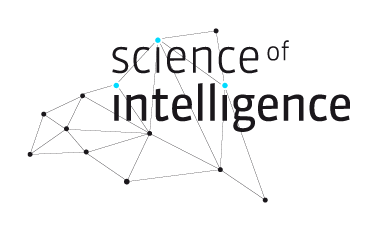
Verena Hafner
HU Berlin, Developmental Robotics
phone: +49 30 2093 3905
Verena Hafner is Professor of Adaptive Systems at Humboldt-Universität zu Berlin and Head of the Adaptive Systems Group at the Department of Computer Science. For SCIoI, she represents the synthetic discipline of robotics. She focuses on sensorimotor interaction and development. She has investigated open-ended development and social interaction in artificial agents that attracted high interest in the cognitive and developmental robotics community and she has substantial experience in interdisciplinary cooperation.
At SCIoI, Verena is working on Project 06, Project 09, Project 10, Project 45, Project 50, Project 59, Integration.
SCIoI Publications:
Yun, H. S., Taliaronak, V., Kirtay, M., Chevelère, J., Hübert, H., Hafner, V. V., Pinkwart, N., & Lazarides, R. (2022). Challenges in Designing Teacher Robots with Motivation Based Gestures. 17th Annual ACM/IEEE International Conference on Human-Robot Interaction (HRI 2022). https://drive.google.com/file/d/1IUxuJMiReGpGnYvaXa918lWF_t11aRLN/view
Yun, H. S., Hübert, H., Taliaronak, V., Mayet, R., Kirtay, M., Hafner, V. V., & Pinkwart, N. (2022). AI-based Open-Source Gesture Retargeting to a Humanoid Teaching Robot. AIED 2022: The 23rd International Conference on Artificial Intelligence in Education. https://link.springer.com/chapter/10.1007/978-3-031-11647-6_51
Yun, H. S., Hübert, H., Chevalere, J., Pinkwart, N., Hafner, V., & Lazarides, R. (2023). Analyzing Learners’ Emotion from an HRI experiment using Facial Expression Recognition Systems. 25th International Conference on Human-Computer Interaction.
Yun, H. S., Hübert, H., Sardogan, A., Pinkwart, N., Hafner, V., & Lazarides, R. (2023). Humanoid Robot as a Debate Partner. 25th International Conference on Human-Computer Interaction.
Wudarczyk, O. A., Kirtay, M., Kuhlen, A. K., Abdel Rahman, R., Haynes, J.-D., Hafner, V. V., & Pischedda, D. (2021). Bringing Together Robotics, Neuroscience, and Psychology: Lessons Learned From an Interdisciplinary Project. Frontiers in Human Neuroscience, 15. https://doi.org/10.3389/fnhum.2021.630789
Wudarczyk, O. A., Kirtay, M., Pischedda, D., Hafner, V. V., Haynes, J.-D., Kuhlen, A. K., & Abdel Rahman, R. (2021). Robots facilitate human language production. Scientific Reports, 11(1), 16737. https://doi.org/10.1038/s41598-021-95645-9
Pischedda, D., Lange, A., Kirtay, M., Wudarczyk, O. A., Abdel Rahman, R., Hafner, V. V., Kuhlen, A. K., & Haynes, J.-D. (2021). Am I speaking to a human, a robot, or a computer? Neural representations of task partners in communicative interactions with humans or artificial agents. Neuroscience 2021.
Pischedda, D., Lange, A., Kirtay, M., Wudarczyk, O. A., Abdel Rahman, R., Hafner, V. V., Kuhlen, A. K., & Haynes, J.-D. (2021). Who is my interlocutor? Partner-specific neural representations during communicative interactions with human or artificial task partners. 5th Virtual Social Interactions (VSI) Conference.
Musiolek, L., Hafner, V. V., Krause, J., Landgraf, T., & Bierbach, D. (2020). Robofish as Social Partner for Live Guppies. Biomimetic and Biohybrid Systems, 270–274. https://doi.org/10.1007/978-3-030-64313-3_26
Mellmann, H., Schlotter, B., Musiolek, L., & Hafner, V. V. (2020). Anticipation as a Mechanism for Complex Behavior in Artificial Agents. Artificial Life Conference Proceedings, 32, 157–159. https://doi.org/10.1162/isal_a_00314
Landgraf, T., Gebhardt, G. H. W., Bierbach, D., Romanczuk, P., Musiolek, L., Hafner, V. V., & Krause, J. (2020). Animal-in-the-Loop: Using Interactive Robotic Conspecifics to Study Social Behavior in Animal Groups. Annual Review of Control, Robotics, and Autonomous Systems. https://doi.org/10.1146/annurev-control-061920-103228
Kirtay, M., Wudarczyk, O. A., Pischedda, D., Kuhlen, A. K., Abdel Rahman, R., Haynes, J.-D., & Hafner, V. V. (2020). Modeling robot co-representation: state-of-the-art, open issues, and predictive learning as a possible framework. 2020 Joint IEEE 10th International Conference on Development and Learning and Epigenetic Robotics (ICDL-EpiRob), 1–8. https://doi.org/10.1109/ICDL-EpiRob48136.2020.9278031
Kirtay, M., Chevalère, J., Lazarides, R., & Hafner, V. V. (2021). Learning in Social Interaction: Perspectives from Psychology and Robotics. 2021 IEEE International Conference on Development and Learning (ICDL), 1–8. https://doi.org/10.1109/ICDL49984.2021.9515648
Kirtay, M., Oztop, E., Asada, M., & Hafner, V. V. (2021). Modeling robot trust based on emergent emotion in an interactive task. 2021 IEEE International Conference on Development and Learning (ICDL), 1–8. https://doi.org/10.1109/ICDL49984.2021.9515645
Kirtay, M., Oztop, E., Asada, M., & Hafner, V. V. (2021). Trust me! I am a robot: an affective computational account of scaffolding in robot-robot interaction. 2021 30th IEEE International Conference on Robot & Human Interactive Communication (RO-MAN), 189–196. https://doi.org/10.1109/RO-MAN50785.2021.9515494
Kirtay, M., Hafner, V. V., Asada, M., & Oztop, E. (2023). Trust in robot-robot scaffolding. IEEE Transactions on Cognitive and Developmental Systems. https://doi.org/10.1109/TCDS.2023.3235974
Kirtay, M., Oztop, E., Kuhlen, A. K., Asada, M., & Hafner, V. V. (2022). Forming robot trust in heterogeneous agents during a multimodal interactive game. 2022 IEEE International Conference on Development and Learning (ICDL), 307–313. https://doi.org/10.1109/ICDL53763.2022.9962212
Kirtay, M., Oztop, E., Kuhlen, A. K., Asada, M., & Hafner, V. V. (2022). Trustworthiness assessment in multimodal human-robot interaction based on cognitive load. 2022 31st IEEE International Conference on Robot and Human Interactive Communication (RO-MAN), 469–476. https://doi.org/10.1109/RO-MAN53752.2022.9900730
Chevalère, J., Kirtay, M., Hafner, V., & Lazarides, R. (2022). Who to Observe and Imitate in Humans and Robots: The Importance of Motivational Factors. International Journal of Social Robotics. https://doi.org/10.1007/s12369-022-00923-9
Chevalère, J., Lazarides, R., Yun, H. S., Henke, A., Lazarides, C., Pinkwart, N., & Hafner, V. (2023). Do instructional strategies considering activity emotions reduce students’ boredom in a computerized open-ended learning environment? Computers & Education, 196. https://doi.org/10.1016/j.compedu.2023.104741
Bierbach, D., Francisco, F., Lukas, J., Landgraf, T., Maxeiner, M., Romanczuk, P., Musiolek, L., Hafner, V. V., & Krause, J. (2021). Biomimetic robots promote the 3Rs Principle in animal testing. ALIFE 2021: The 2021 Conference on Artificial Life. https://doi.org/10.1162/isal_a_00375
Bierbach, D., Gómez-Nava, L., Francisco, F. A., Lukas, J., Musiolek, L., Hafner, V. V., Landgraf, T., Romanczuk, P., & Krause, J. (2022). Live fish learn to anticipate the movement of a fish-like robot. Bioinspiration & Biomimetics. https://doi.org/10.1088/1748-3190/ac8e3e

